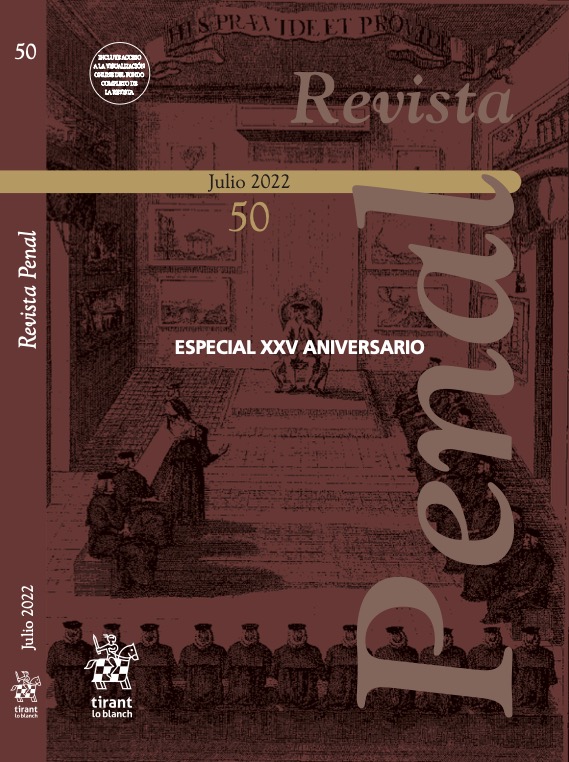The foundation of the dogmatic category of guilt (A study in light of the significant conception of action)
Keywords:
significant conception of the action, principle of guilt, dogmatic category of guilt, enforceability, imputability, awareness of unlawfulness, error on the prohibition individual criminal enforceability, causes of unenforceability or exculpationAbstract
The present work aims to offer some notes on the basis of the dogmatic category of guilt, keeping in mind the premises of the significant conception of the action (and of the crime) elaborated by Vives Antón. This presupposes distinguishing between the basis of the principle of guilt, on the one hand, and the basis of guilt, conceived as a dogmatic category of the theory of crime, on the other. In line with the statements of Vives, the foundation of the dogmatic category of guilt must be situated, in principle, in the idea of the requirement by the State of an appropriate behavior according to Law to the offending subject, in view of the circumstances, of the specific case under examination. Thus, I intend to unravel what are the criteria that determine that enforceability from the premises of the significant conception, carrying out a natural development of Vives’ position. To this end, the task of exposing said foundation is broken down into two aspects: on the one hand, the generic material foundation of the dogmatic category of guilt, common to all its elements, based on the idea of enforceability, is analyzed; On the other hand, it examines what is the specific material foundation of each of the elements that can be included in said category, within which (excluding imputability, which becomes the presupposition of subjective unlawfulness) I include conscience, of unlawfulness (and its reverse, the error on the prohibition) and individual criminal enforceability (and its reverse, the causes of inexigibility or exculpation).



